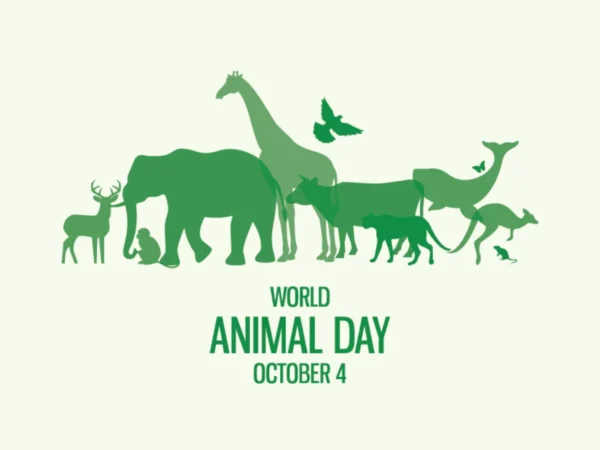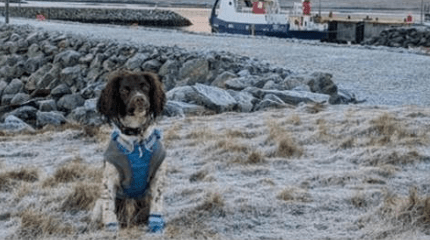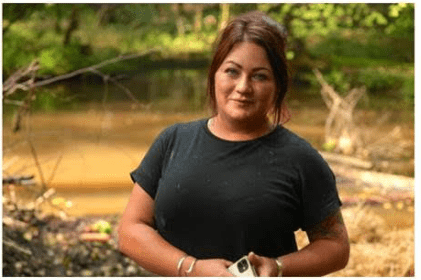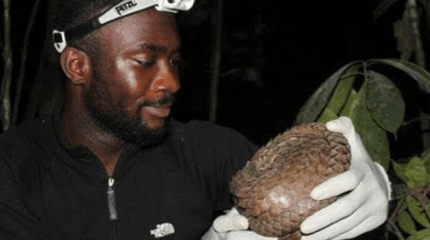
Awards Recognise UK’s Unsung Animal Heroes

This World Animal Day (Friday 4th October), the International Fund for Animal Welfare (IFAW) is recognising three extraordinary individuals, and one very special dog, who have made considerable contributions to animal conservation across the country.
World Animal Day is an annual event aiming to make the world a better place for animals. The 2024 annual Animal Action Awards, now in its 24th year, put a spotlight on the unsung heroes in animal welfare, celebrating their unique projects at an illustrious award ceremony at the BAFTA London.
The 2024 Animal Action Award Winners

Reid: a specialist detection dog from Liverpool who undertakes groundbreaking conservation work with owner Rachel Cripps.
Reid is a six-year-old springer spaniel, who works with his handler, Rachel Cripps for Biosecurity for Scotland, to safeguard endangered seabirds such as Atlantic puffins, great skuas and Leach’s storm petrels, earning him the Animal of the Year award from IFAW.
In 2021, NatureScot found that the number of 11 species of seabirds in Scotland had almost halved since the 1980s. Invasive rodent species pose a catastrophic threat to these birds, potentially decimating populations as they hunt for eggs, chicks, and sometimes even adult birds.
Reid’s work focuses on protecting 38 seabird islands around Scotland, including Bass Rock – home to the largest colony of breeding Northern Gannets in the world, and St Kilda – with the largest colony of Puffins in the UK.
On winning the award, Rachel said: “I’m so proud of Reid. He works so hard and often has to endure difficult boat journeys. This is such a big achievement, and I really hope it goes to show the potential for how dogs can play a vital role in conservation.”

Roisin is Head of Restoration with the Beaver Trust and has been instrumental in the rewilding of the animals, which now have official protected status.
Fifteen years ago the first official rewilding project saw the native mammal species return to Scotland after an absence of 400 years. Today, Roisin’s conservation work has significantly contributed to the wider rewilding of beavers across Britain and to the species now having a population of approximately 3,000 in this country.
Roisin commented: “I’m very passionate about this species. I want to see it restored, and I want to see people embrace the benefits they can bring. There’s still so much work to do – it’s a great job, it’s hard work, but seeing the animals back out there really spurs me on. Wild releases are always special”.
As Head of Restoration at the Beaver Trust, Roisin remains involved in all aspects of beaver restoration, leading a team that facilitates coexistence between people and wildlife, and the more practical work, such as trapping beavers to relocate them.

Charles Emogor: a scientist on a mission to protect pangolins
The pangolin is a scaly mammal which is the world’s most trafficked animal. Charles is a PhD student from Cambridge, and has been studying threats to the species since 2019, founding Pangolino – a global network of specialists looking to reverse the decline of the pangolin, shortly after.
Much of Charles’ work focuses on behaviour change interventions in Nigeria to protect the white-bellied pangolin. He engages with poachers, school children, regional chiefs and local communities, and his success in engaging with hunters who poach pangolins has even led to a breakthrough discovery. Hunting pangolins is illegal, and it was widely thought pangolins were hunted primarily for their scales. However, his work has shown that pangolin hunting is mainly motivated by demand for meat, with over 70% of scales derived from captured animals discarded.
Upon learning he had won an IFAW Animal Action Award, Charles said: “I was first sceptical to get this news that I had won this award from IFAW. This is such a huge award, so in realising that it is real, I felt humbled. I hope that it will help raise awareness of the plight of the pangolin.”
The Animal Action Awards will take place this year at the BAFTA, London, presented by wildlife presenter and cameraman, Hamza Yassin, on 17th October. For more information visit www.ifaw.org/uk














































